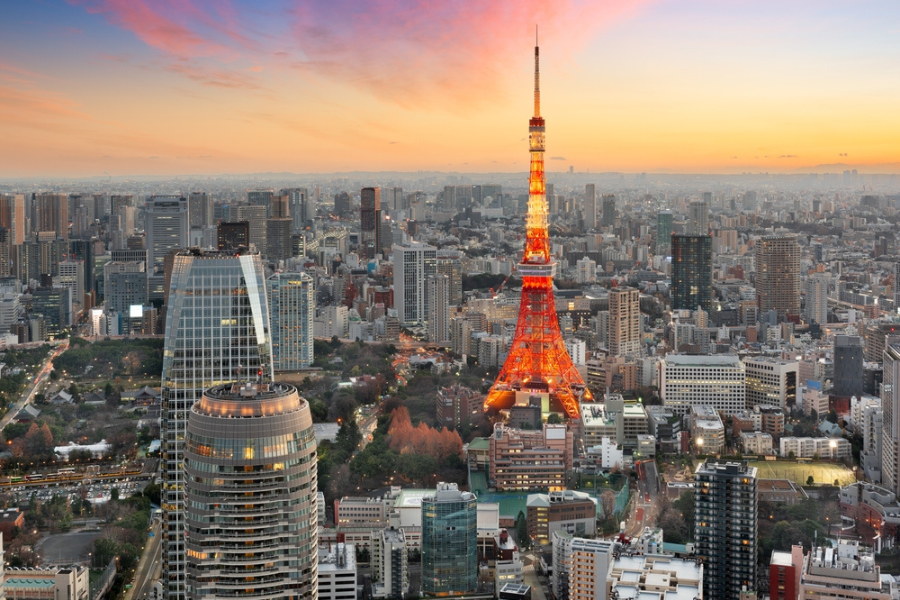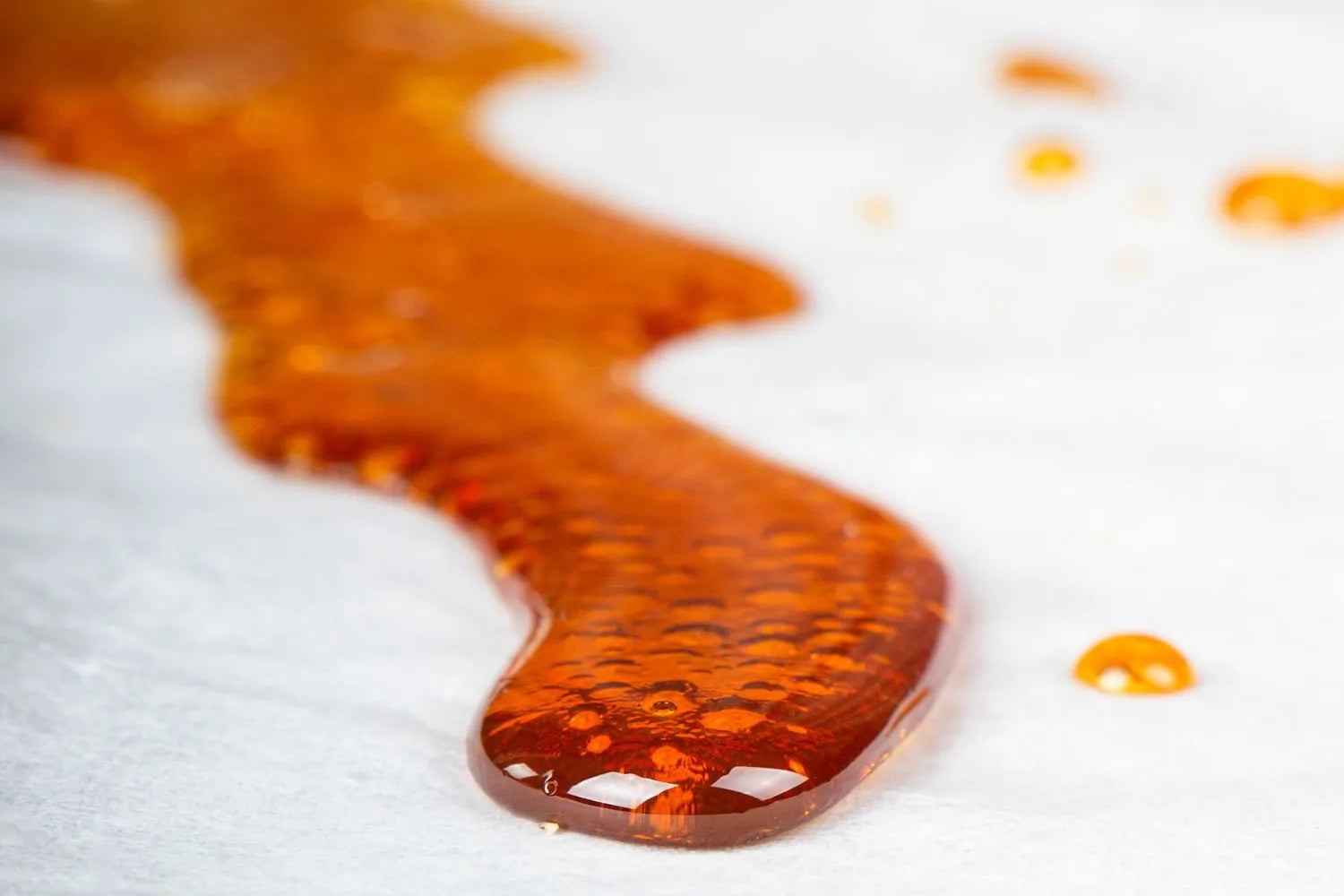CBD distillate and CBD isolate are often used interchangeably. This is understandable since they share many similarities. However, some key fundamental differences affect the benefits and experience of CBD products, such as tinctures, edibles, and inhaled products.
Understanding the difference between CBD distillate and CBD isolate will help you decide which product fits your needs.
What is CBD Distillate?
CBD distillate is arguably the purest form of hemp CBD extract. Manufacturers can create a very pure final product using a multi-step extraction and distillation process (more on that later). Typically, this form of cannabis plant extract contains a high concentration of CBD, ranging from 65-90%, along with other cannabinoids, natural plant oils, and, with the appropriate team expertise and equipment, the potential for terpenes.
Some extraction, distillation, and purification techniques and equipment may be better at preserving other cannabinoids, like CBG, CBN, CBC, CBT, CBL, and more. Typically, the presence of other cannabinoids in distillate ranges from 1 to 15%, or upwards of 20% in Crystal Resistant CBD Distillate. Companies can, therefore, use some distillates in full-spectrum CBD products. However, other distillate producers perform an additional step to remove THC. This makes distillate appropriate for broad-spectrum CBD as well, also known as THC-Free.
These distillates may pack a strong therapeutic punch. The strong CBD content and (at least slightly) higher minor cannabinoid profiles may offer benefits that CBD alone won’t provide.
Misconceptions About CBD Distillates
CBD distillates, available in Full Spectrum, Broad Spectrum, and Crystal Resistant forms, are frequently marketed as containing more than just cannabinoids – specifically, beneficial compounds like terpenes. However, the reality is that almost all distillates available lack terpenes entirely.
Why is this the case? Most manufacturers must employ high heat during distillation to eliminate unwanted compounds, oils, and contaminants such as fats, waxes, lipids, gums, and more. Unfortunately, this process leads to the loss of both cannabinoids and all terpenes present before distillation.
Before purchasing any form of distillate-made product or working with a CBD manufacturer, make sure to ask about their process and if their distillates contain terpenes, like Arvanna’s process.
Appearance
CBD distillate looks like golden oil or honey. It's also fairly dense, comparable to maple syrup.

Pros of CBD Distillate
There are a few advantages to CBD distillate that make it worth considering.
Higher Potency
One significant difference between CBD isolate products and distillate is that the former is up to 99% CBD, while the latter contains 65-90%.
But don't let the numbers fool you. Again, some distillates contain up to 10% additional cannabinoids. Despite its higher purity, CBD isolate lacks the many hemp plant cannabinoids needed for the synergistic "entourage effect." This combination of plant compounds working together is crucial for maximizing the product's possible health benefits.
Although distillate may also have a few additional cannabinoids, it still carries more than isolate.
Versatile
Distillate is the foundation of many CBD products, including full and broad-spectrum vapes, oils, capsules, and gummies.
Depending on the quality of the extraction and distillation process, there may also be enough minor cannabinoids to make into specially formulated products, like CBG, CBN, and CBC.
Cons of CBD Distillate
There are solid reasons to try distillates over isolates, but there are some drawbacks you need to consider.
May Contain THC
The biggest disadvantage - and potential dealbreaker - for many people is that distillate contains some THC. Although it may not be enough to cause intoxication, concerns about THC sensitivity or drug tests may cause people to avoid these products.
Broad Spectrum THC levels are too low for most (if not all) tests to detect, making their presence inconsequential. Consumers looking for a Full Spectrum cannabinoid experience without THC should choose this option.
Taste
Since it retains many cannabis plant compounds, CBD distillate may also carry a plant-like taste, sometimes too strong if not refined properly. This "hempy" flavor can be a bit overpowering for some.
Edibles help address the flavor problem, but sometimes, they're not enough to completely mask the hemp undertones.
More Expensive
The adage, “you get what you pay for,” fully applies to CBD distillate. Unfortunately, better quality means a harder hit to your wallet.
What is CBD Isolate?
CBD isolate - as the name implies - is the closest to pure CBD available. It is extracted by isolating CBD from CBD distillate, as we'll explore in more detail below.
Although it doesn't offer the best potential health benefits, CBD isolate still has a strong following for its flexible product options and lack of THC. It doesn't have a taste or smell, so CBD isolate is perfect for infusing with flavored products, like CBD gummies and edibles.
Most notably, CBD isolate is up to 99% CBD, with no traces of other plant compounds. Many consumers appreciate this purity since the isolate doesn't contain other cannabinoids, specifically THC.
How do Companies Produce CBD Isolate?
CBD isolate is a distillate that undergoes further purification to remove everything except CBD. We'll cover the process later, but it involves the following steps:
- Extraction
- Winterization
- Filtration
- Decarboxylation
- Distillation
- Isolation
Appearance
CBD isolate looks like a white crystalline powder. It's colorless, odorless, and contains no other cannabis plant compounds.

Pros of CBD Isolate
There are a few reasons why CBD isolate might be the right option for you.
Highly Versatile
Isolates are colorless, and odorless. They blend better with other ingredients, making them ideal for mixing into edibles without adding a "hempy" taste or smell.
Cheaper
Isolates are inexpensive compared to their distillate counterparts. This can be a huge selling point for some people, but keep in mind the performance differences.
No THC
Since it's pure CBD, isolate does not contain THC. As a result, it's perfect for people who are worried about tetrahydrocannabinol.
Cons of CBD Isolate
Less Effective
Since CBD isolate contains no additional compounds, it doesn't offer the potential health benefits from the theoretical "entourage effect."
Not all Isolates are Alike
Although isolates are advertised to contain no THC, let the buyer beware. Not every vendor is thorough and may cut corners to reduce costs.
Consequently, the allegedly “THC-free” product may pack an unpleasant surprise.
Always buy from a company that posts third-party lab test results to confirm that the isolate contains no THC.
CBD Isolate vs. CBD Distillate: Which is Better?
CBD distillate and isolate differ significantly in virtually every way. Considering their pros and cons, it’s impossible to label one as better definitively.
The type of extract you choose depends on your own therapeutic needs and consumption preferences. It's important to note that CBD distillate is often favored over isolates due to the presence of other cannabinoids, which work synergistically to enhance overall effects and benefits.
What is Full Spectrum CBD Distillate?
Full-spectrum CBD distillate is distillate in its most natural form. None of the cannabinoids are deliberately removed during distillation.
However, some are lost during the process. As we mentioned earlier, retention depends on the quality of the manufacturing process. While this offers the best combination of CBD and (possibly) other cannabinoids, the products could contain up to 0.3% THC.
What is Broad Spectrum CBD Distillate?
Broad Spectrum CBD distillate is similar to full-spectrum. However, unlike Full Spectrum CBD, Broad Spectrum contains undetectable levels of THC.
The main challenge with Broad Spectrum is that manufacturers must remove THC while retaining as many other compounds as possible. To that end, there are two methods. To delve deeper into these two methods, if you're interested, you can read our blog post on THC Degradation vs. Chromatography.
THC Degradation
THC degradation is a natural process that happens slowly through light, heat, and air exposure.
In Broad Spectrum production, manufacturers expedite degradation using pressure, light, and heat. Eventually, the THC breaks down into CBN, a sedating cannabinoid with a much weaker affinity for the CB1 receptors. This triggers a sedating feeling without intoxication.
This process offers some advantages. For instance, it leaves behind a robust array of cannabinoids, which manufacturers can use for specially formulated products.
THC degradation is also much easier and cheaper than chromatography, making it easier to implement than more advanced methods. This also carries the added advantage of being very cost-effective.
Chromatography
There are a few different approaches to chromatography, but they all rely on the same basic principle.
After combining with a solvent, the crude extract is pushed through a special filter. The differences in chemical structures between THC and CBD allow them to separate during filtration.
Chromatography is perfect for large-scale manufacturers who can invest in the proper equipment. The technique is more efficient, allowing more large-scale production compared to degradation.
While chromatography provides greater control over the final product, allowing for precise THC and CBD content regulation, it comes with significant expenses, including the purchase of specialized equipment, ongoing material replacement costs, and the need for a team with specific expertise.
How is CBD Distillate Made? The Standard Process
CBD distillate isn't something you can make at home. The extract requires a long and complicated industrial process.
Plant Extraction
The first step involves the extraction process. This removes CBD and other components from the hemp plants. This requires a solvent, such as propane, butane, alcohol, or CO2.
Most manufacturers use carbon dioxide extraction, as it's the only method that leaves no solvent traces. Ethanol is less popular but still very effective. Hydrocarbon methods are rarely used to make oil extracts. However, products like resin, shatter, wax, and other emerging CBD cannabis plant concentrates still require butane or propane.
Once complete, the process leaves behind crude oil that requires further filtration before it's appropriate for CBD oil or other products.
Winterization
The filtered CBD undergoes "winterization," which removes fats and other unwanted plant compounds. In winterization, the purified distillate is combined with food-grade ethanol. Manufacturers then cool the mixture to a low temperature. After the unwanted matter separates from the cannabidiol, these fats, waxes, and other compounds float at the top of the cold liquid.
Filtration
Companies use a vacuum pump to push the ethanol through a filter, catching unwanted plant matter and allowing the CBD to flow through.
Decarboxylation
After filtration comes decarboxylation. This crucial step uses heat to activate the cannabinoids for consumption. Without decarboxylation, the substances in cannabis won't activate, leaving few (if any) potential benefits.
Distillation
Finally comes the moment we've been waiting for. There are a few ways to complete the process, but they all follow the same basic principle.
The combined ethanol, cannabinoids, and other compounds are boiled until they vaporize. Again, terpenes are unfortunately lost during the process.
After a while, the cannabinoids condense and cool. Manufacturers separate and collect those substances. They can choose to combine them to make broad-spectrum and full-spectrum CBD products.
How CBD Distillate is Used to Make CBD Isolate
CBD distillate is used to make CBD isolate immediately after the distillation process. As mentioned earlier, the distillation technique collects the separate compounds after condensing them.
Isolation
As the name implies, isolation is the process of making isolate out of distillate.
One option is chromatography, as we mentioned earlier. This is an effective way to separate CBD, THC, and other trace compounds from the distillate.
Another technique involves adding a solvent, like pentane, and mixing it in an industrial machine under high heat.
Eventually, the distillate and solvent combo crystallize into a fine, white, crystalline powder.
How to Know if a CBD Product Is Made Using Distillate or Isolate?
The easiest way to know if a CBD product is made using distillate or isolate is to read the label. Reputable manufacturers list the ingredients and third-party test results to confirm the product's efficacy.
If you still need clarification, remember that Full Spectrum CBD and Broad Spectrum CBD products require distillate since they carry the additional plant compounds that isolate won't.
Displayed below is a screenshot of the Full Spectrum supplement facts from one of our clients, clearly indicating that it is crafted with CBD distillate, not CBD isolate.

Frequently Asked Questions
Can you use CBD Distillate to make CBD gummies?
Yes, you can use CBD distillate and isolate to make gummies.
Is CBD Isolate 100% CBD?
No, CBD isolate isn't 100% CBD - but it's pretty close. As we touched upon earlier, CBD isolate can be composed of up to 99% CBD.
Can CBD Isolate show up on a drug test?
No, CBD isolates can't show up on a drug test. With cannabis, drug tests look for traces of THC metabolites in the body. These occur when our bodies break down THC following consumption.
In short, CBD isolate won't show up on a drug test because they don't test for cannabidiol.
Can CBD Distillate be used to vape?
Yes, CBD distillate can be used to vape. Full-spectrum and broad-spectrum CBD vapes require distillate.
Unfortunately, not all distillate pens and cartridges are alike. Some products may crystallize over some time, making them unusable. However, Crystal Resistant CBD Distillate vape products are formulated to prevent crystallization.
Conclusion: CBD Distillate and Isolate Difference
Isolate and distillate differ significantly. Although they both offer a high concentration of CBD, the former trades efficacy for purity, while the latter is more effective but may contain THC.
Ultimately, both options can be fantastic, depending on your personal needs. Individuals who want Full Spectrum and Broad Spectrum products for therapeutic use will inevitably use distillate. The cannabinoids and other trace cannabis compounds maximize the potential therapeutic effects.
Those looking for a THC-free product that has no flavor will enjoy the benefits of CBD isolate.
Regardless, we have to appreciate the fact that there's a CBD product for everyone.




